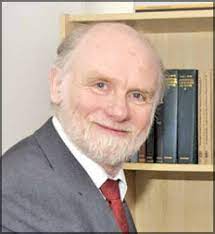Read our latest newsletter. Our latest newsletter is now available with updates, photos and stories of what is going on the EUZW Project
- Author
-
Torsten Fransson

- Title
- Digitising The Higher Educational Landscape
- News
-
By:- LUCIA DHAFANA-MABIKA, University of Zimbabwe
In the face of changing climatic landscapes, and increased global interaction, many challenges bedeviling countries have had to be shared and addressed collaboratively. Amongst the challenges being experienced the world over, the energy crisis is one of them. Zimbabwe has not been spared too. Efforts are underway to address the challenges for a progressive country. To address these challenges, the Digital Challenge-Driven Energy Learning Collaboration between European Union (EU) and Zimbabwe project aims to enhance accessibility and inclusivity in energy education through digital technologies
Under the EU-ZW project, five Higher Education Institutions (HEIs) in Zimbabwe will collaborate with two Higher Education Institutions in EU. The University of Zimbabwe (UoZ) is one of the five institutions. The project will enable development and implementation of new courses and programs adapted for local conditions. These courses will enhance the modernization process of the Zimbabwe HEIs by introducing a challenge-driven student-centered flipped classroom approach in which innovation and entrepreneurship takes a predominant role. A set of globally remotely accessible laboratory exercises will be introduced to Zimbabwe teachers and students. The learning material, which will be in digital format will also be read in remote areas, both as part of a formal academic study program and as stand-alone modules for individual learning journeys. A large emphasize will be on “train-the-trainers” towards collaboration and re-use of existing material from earlier CBHE-projects. The Zimbabwe educators will gain experience with the collaboration and become involved globally. As a result, Zimbabwe HEIs will have clearly demonstrated, in a measurable/scalable way, that it is possible to collaborate on educational material in the energy sector globally, to co-create and re-use material from other colleagues, improve the material, adapt it to local conditions and create an international collaboration in which students, teachers, societal actors commonly attack some of the local and global challenges humanity stands in front of.
As a UoZ representative, I have been tasked to represent the institution in WP8. Work package 8 is being led by the National University of Science and Technology (NUST). The objective of WP8 is to ensure that the EU-ZW partners (NUST, UoZ, Lupane State University, Chinhoyi University of Technology, and Midlands State University) agree upon the expected number of learning hours for any specific learning resource as well as to agree upon the progression of the Intended Learning outcomes as learners progress through the “EXPLORE Energy Digital Academy (EEDA) Stacking”. This enables progression from one course to another in the academic programs the EU-ZW partners develop and implement in Work Package 7. This is instrumental for accreditation or certification of co-created learning material in an international environment.
The measurable objectives of WP8 are to ensure that all the courses in the EU-ZW project are included in the EEDA “conversion table” such that teachers and students globally can distinctly compare courses and modules offered on international platforms. To create a “progression” table in which all partners identify their progression of Intended Learning Outcomes (ILOs) as per the levels, and course progression. Summarise, conclude, and document the process in a publication for use by other HEIs in the partner countries. It should be hastened that WP8 primarily is laying groundwork for a later international collaboration towards certification and accreditation of commonly shared areas. No accreditation or certification is being carried out at this stage.

WP8 Responsibilities
1. Review, and full understanding by all partners of the existing “EEDA Stacking” concept.
2. Table of Estimated Learning Hours vs respective HEI specific requirements.
3. Table of Intended Learning Outcomes progressions vs all respective HEI specific requirements.
4. Suggestion of a (later) double degree concept toward WP7.
5. Improvements to the EEDA concept from the partners requirements.
6.Publication summarising the concept established by the consortium
The above-mentioned tasks have different due dates on which they should be worked upon and submitted.As a representative from UoZ, I have participated in the meetings and contributed to some of the tasks at hand by providing information on what is currently taking place at UoZ in relation to the ongoing EU-ZW project.
The next scheduled meeting will concentrate on critiquing the listed EEDA options in form of modules,and recommend improvements where necessary, and weigh in on future possibilities of coming up with double degrees and post-graduate programmes that are synchronized.
Continuous progress shall be made as meetings are held and tasks carried out.
We endeavour to keep you informed.
Stay tuned!!!!!!!!The above-mentioned tasks have different due dates on which they should be worked upon and submitted.
As a representative from UoZ, I have participated in the meetings and contributed to some of the tasks at hand by providing information on what is currently taking place at UoZ in relation to the ongoing EU-ZW project.
The next scheduled meeting will concentrate on critiquing the listed EEDA options in form of modules,and recommend improvements where necessary, and weigh in on future possibilities of coming up with double degrees and post-graduate programmes that are synchronized.
Continuous progress shall be made as meetings are held and tasks carried out.
We endeavour to keep you informed.
Stay tuned!!!!!!!!
....END....
